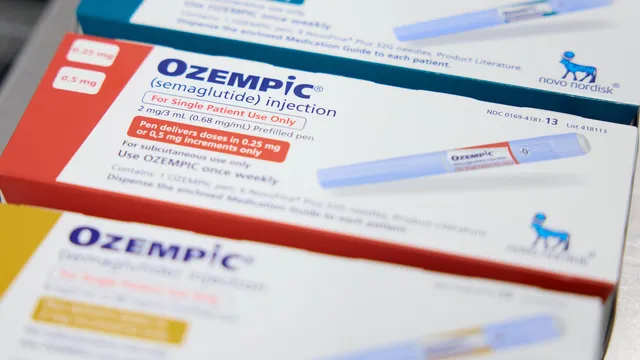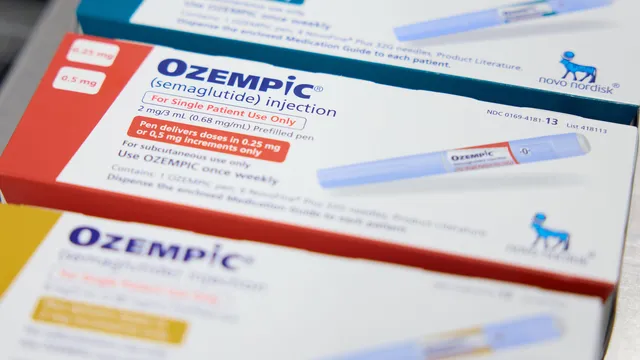The new generation of weight loss drugs has proven to be extremely effective, gaining widespread popularity and generating significant revenues in recent years, despite some drawbacks. Now that all doctors in France are allowed to prescribe them, here are some key facts about these drugs.
The best known are Ozempic and Wegovy from the Danish company Novo Nordisk and Mounjaro from the American company Eli Lilly. They enhance the action of a hormone produced in the pancreas called glucagon-like peptide-1 (GLP-1). These drugs were originally developed to treat diabetes, as the hormone regulates insulin secretion, but they have also been found to suppress appetite by creating a feeling of fullness.
Obesity experts consider these drugs a historic achievement, as until now, when diet and exercise failed, surgery was the main method of treating severe obesity. Obesity affects around 900 million people worldwide and is a serious health crisis. The new drugs fill a big gap, as obesity was one of the few chronic diseases with a limited range of medications. Clinical studies show that, on average, patients lose 15-20 percent of their weight.
However, the drugs also have limitations. Semaglutide, the active ingredient in Ozempic, has been approved for diabetes since 2017 and has a track record of safety. A large study of health data from hundreds of thousands of US veterans found no increased risk of heart disease or mental health problems, but there have been rare cases of serious side effects such as pancreatic damage. More common are nausea, vomiting, migraines, and sleep problems, which can cause patients to stop taking the medication. Not everyone responds the same way—some people don't lose weight. The effect of the drugs lasts only as long as they are taken, which means that treatment is likely to be long-term. They are expensive, costing over $1,000 per month in the US and around €300 in France. They are currently only available as injections, but pharmaceutical companies are developing tablets for daily use.
Health authorities recommend that these drugs be used only in people who are overweight or obese and for whom other methods have been unsuccessful. However, there are cases of use by people without serious weight problems, solely for aesthetic reasons, which regulators consider risky and dangerous.
According to experts, even more effective drugs with fewer side effects, lower prices, and more convenient forms of administration are expected to be developed rapidly in the future, although combining all these qualities in a single product is a challenge. Pharmaceutical companies are racing to bring new therapies to market, with Novo Nordisk's experimental drug amycretin showing promising results. In addition to obesity, GLP-1 drugs may also have benefits for other conditions such as dementia and addiction, but it is not yet clear whether the effect is direct or related to improvements in underlying health problems. | BGNES, AFP

 Breaking news
Breaking news
 Europe
Europe
 Bulgaria
Bulgaria







